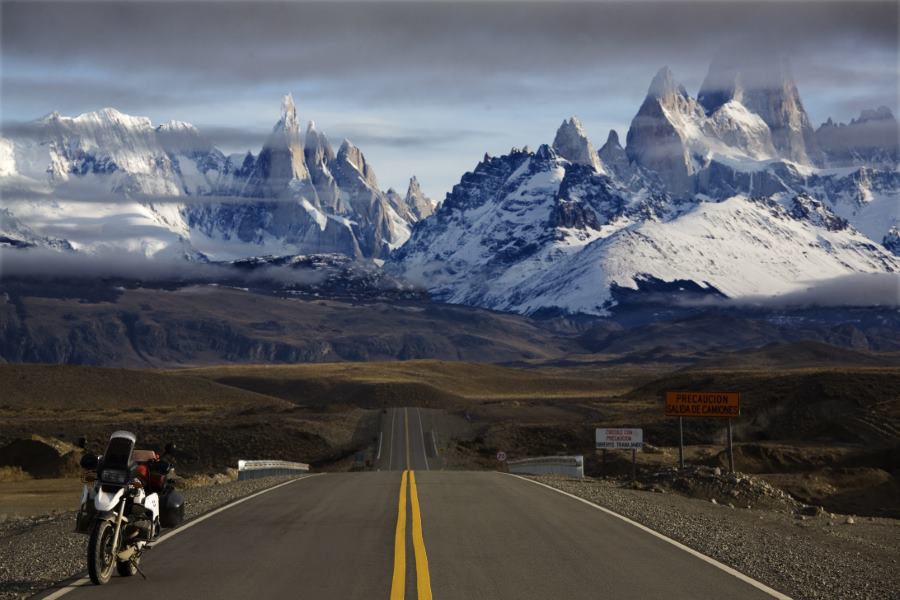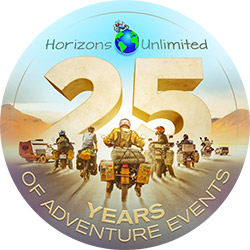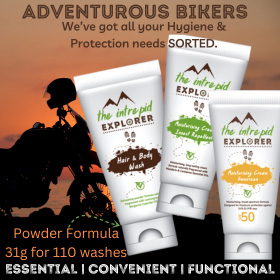 2Likes 2Likes

26 Oct 2022
|
|
Registered Users
New on the HUBB
|
|
Join Date: Oct 2022
Location: Northern Germany
Posts: 2
|
|
|
Which older car brands/models are the most ubiquitous in Africa?
Hi All,
Quick version:
Which older (ca. 1995-2010) car brands/models are the most ubiquitous in the various countries of Africa? And are they mostly petrol or diesel?
Long version:
New to this forum. I have toured the Sahara by bicycle ages ago, but haven’t done any similar trips outside of Europe since then. It’s about time to plan something new, and the missus supports this idea and likes to join.
We are thinking of traveling around Africa, not being limited to the coastal countries however. Not sure whether we would return home by car or we would sell it in Africa.
If I would do it on my own, I would probably go by motorcycle (as I have become something of a lazy bugger now). In this case however, it will be by car for the added comfort and safety. Sleeping primarily in a roof tent with the occasional night in a hotel or guesthouse.
As for car, I would prefer a standard station wagon/estate with 2WD. Petrol or diesel is something I still have to decide.
Why a 2WD standard car and not a 4WD?
- Low profile (as in gathering attraction)
- Far bigger market in Europe (easier to find a good example)
- Lower prices (better car for the same money)
- Lower running costs
- A tad easier to service/repair (both for myself and others)
- Far more of them in Africa than 4WD’s, making it more likely to find parts.
I know there are downsides (as always) to this choice: One may not get to spots where the 4WD’s can go; the classic off-road 4WD’s can often better cope with rotten roads as well as the weight of all the gear and they will more likely survive accidents more or less intact. But, when making a choice, one has to accept the consequences.
I would prepare the vehicle for the not-so-great roads, like lifting the suspension, mounting bigger, AT profile tyres and fitting bash plates.
Now to the essence of the question: Previously I mentioned “Far more of them in Africa than 4WD’s, making it more likely to find parts”. Well, that only counts if your car model is actually found in acceptable numbers in the country you choose for breaking down. I’ve done quite some searching, but I'm afraid the only figures I find are those of cars sold new, whereas I look for older (ca. 1995-2010) cars.
I am aware of the fact that the same model is often equipped with other underpinnings in different parts of the globe, but I need a point to start from.
Also, the situation will vary a lot among the different countries, but please just fire away, I will try to absorb all facts provided.
Looking forward for your observations.
Cheers, Kai
|
|
Currently Active Users Viewing This Thread: 1 (0 Registered Users and/or Members and 1 guests)
|
|
|
 Posting Rules
Posting Rules
|
You may not post new threads
You may not post replies
You may not post attachments
You may not edit your posts
HTML code is Off
|
|
|
| |

Check the RAW segments; Grant, your HU host is on every month!
Episodes below to listen to while you, err, pretend to do something or other...

2020 Edition of Chris Scott's Adventure Motorcycling Handbook.
"Ultimate global guide for red-blooded bikers planning overseas exploration. Covers choice & preparation of best bike, shipping overseas, baggage design, riding techniques, travel health, visas, documentation, safety and useful addresses." Recommended. (Grant)

Led by special operations veterans, Stanford Medicine affiliated physicians, paramedics and other travel experts, Ripcord is perfect for adventure seekers, climbers, skiers, sports enthusiasts, hunters, international travelers, humanitarian efforts, expeditions and more.
Ripcord Rescue Travel Insurance™ combines into a single integrated program the best evacuation and rescue with the premier travel insurance coverages designed for adventurers and travel is covered on motorcycles of all sizes.
(ONLY US RESIDENTS and currently has a limit of 60 days.)
Ripcord Evacuation Insurance is available for ALL nationalities.
What others say about HU...
"This site is the BIBLE for international bike travelers." Greg, Australia
"Thank you! The web site, The travels, The insight, The inspiration, Everything, just thanks." Colin, UK
"My friend and I are planning a trip from Singapore to England... We found (the HU) site invaluable as an aid to planning and have based a lot of our purchases (bikes, riding gear, etc.) on what we have learned from this site." Phil, Australia
"I for one always had an adventurous spirit, but you and Susan lit the fire for my trip and I'll be forever grateful for what you two do to inspire others to just do it." Brent, USA
"Your website is a mecca of valuable information and the (video) series is informative, entertaining, and inspiring!" Jennifer, Canada
"Your worldwide organisation and events are the Go To places to for all serious touring and aspiring touring bikers." Trevor, South Africa
"This is the answer to all my questions." Haydn, Australia
"Keep going the excellent work you are doing for Horizons Unlimited - I love it!" Thomas, Germany
Lots more comments here!

Every book a diary
Every chapter a day
Every day a journey
Refreshingly honest and compelling tales: the hights and lows of a life on the road. Solo, unsupported, budget journeys of discovery.
Authentic, engaging and evocative travel memoirs, overland, around the world and through life.
All 8 books available from the author or as eBooks and audio books
Back Road Map Books and Backroad GPS Maps for all of Canada - a must have!
New to Horizons Unlimited?
New to motorcycle travelling? New to the HU site? Confused? Too many options? It's really very simple - just 4 easy steps!
Horizons Unlimited was founded in 1997 by Grant and Susan Johnson following their journey around the world on a BMW R80G/S.
 Read more about Grant & Susan's story
Read more about Grant & Susan's story
Membership - help keep us going!
Horizons Unlimited is not a big multi-national company, just two people who love motorcycle travel and have grown what started as a hobby in 1997 into a full time job (usually 8-10 hours per day and 7 days a week) and a labour of love. To keep it going and a roof over our heads, we run events all over the world with the help of volunteers; we sell inspirational and informative DVDs; we have a few selected advertisers; and we make a small amount from memberships.
You don't have to be a Member to come to an HU meeting, access the website, or ask questions on the HUBB. What you get for your membership contribution is our sincere gratitude, good karma and knowing that you're helping to keep the motorcycle travel dream alive. Contributing Members and Gold Members do get additional features on the HUBB. Here's a list of all the Member benefits on the HUBB.
|
|

















 2Likes
2Likes



 Toyark
Toyark 











 Threaded Mode
Threaded Mode








